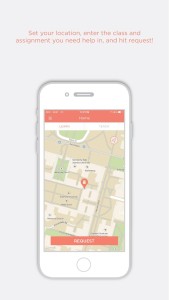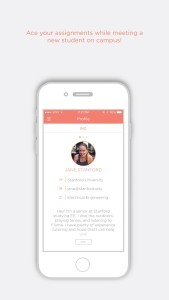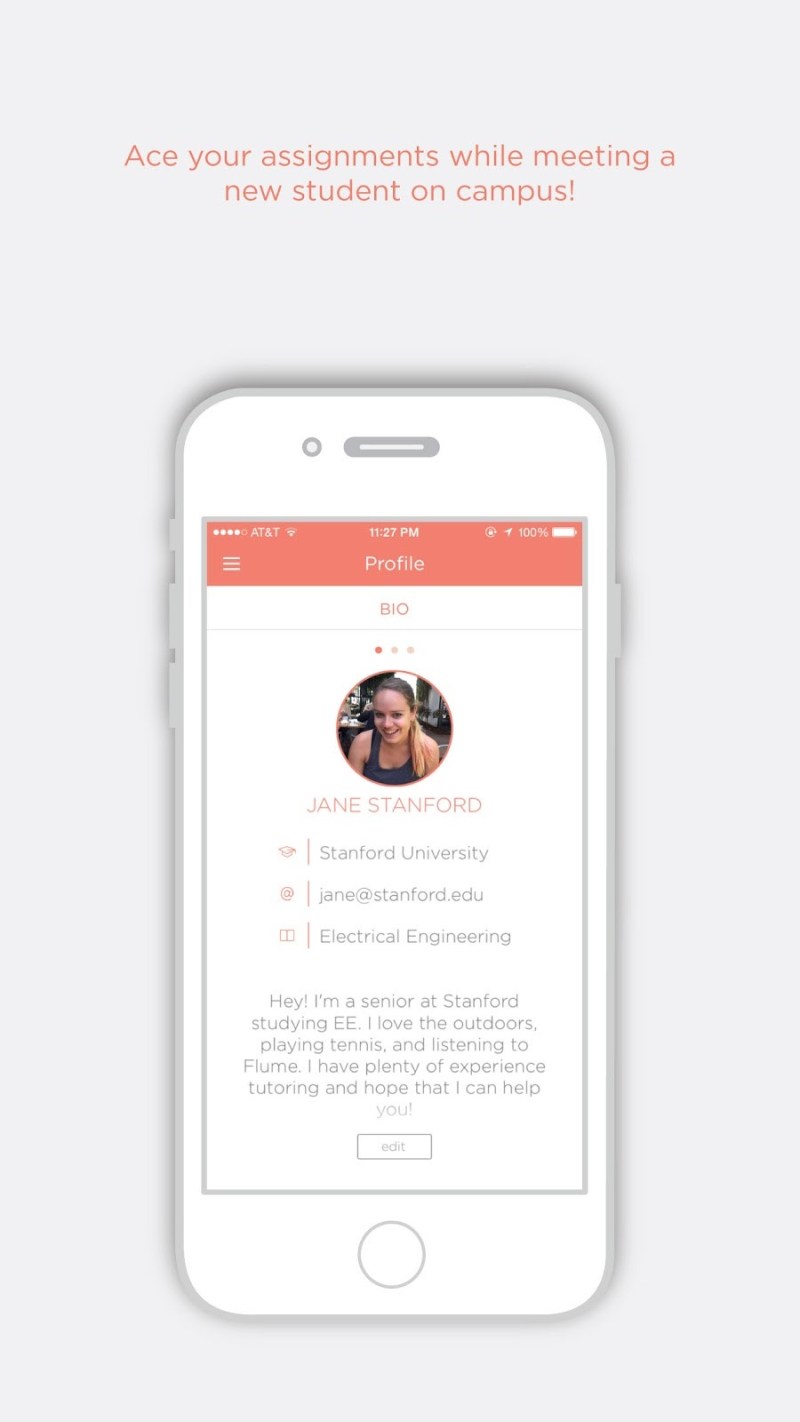In the midst of midterm season, Sesh, a mobile peer-to-peer tutoring app that provides 24/7 on-demand service, has the potential to become your next study partner. Releasing publicly at Stanford on Tuesday, the company was started by eight Stanford and Vanderbilt students.
The selling point of Sesh, explained Zach Saraf ‘15, one of the founders, is the ‘insider information’ that their tutors can provide. Sesh takes great pride in their tutors’ “insider information”. Unlike formal professional tutors, Sesh’s tutors are familiar with class themes and styles of assignments.
“They’ve taken the class before,” Saraf said of the tutors. “They know which topics are more important to focus on.”
“They have the hidden value of having actually been there [themselves],” added Neil Hamamoto ’15, another cofounder.

Sesh matches students with one another based on the classes and assignments they list in the company’s mobile app. Once a student requests a tutor, and a tutor expresses availability, the app allows the two to message each other to coordinate a meet.
Saraf and Hamamoto explained that one of the other selling points of Sesh is the opportunity for students to tutor or be tutored on their own schedules and at a competitive rate. Sesh’s tutors charge $20 an hour, which is less than half of what many established competitors charge.
The procedure that Sesh employs to assure quality control is simple: Students need to send in their transcripts to the company. They are only selected to become tutors if they received an A- or greater in the class.
After evaluating the tutor’s transcript, Sesh puts their trust in the tutor’s tutoring ability without any interaction. There is no past experience required. They provide the tutor with three simple guidelines: Be respectful, be honest and be punctual.
Based on the interactions between tutor and student, the student can give a rating on a five-star scale and “favorite” the tutor to reach out to him or her in the future. The rating is based on knowledge, helpfulness and friendliness. The tutor must maintain a four-star or above rating to continue to be eligible.
In addition to information privacy, Stanford’s Honor Code is another potential area of conflict for the product. It is common to see faculty assign similar or identical problem sets and assignments every year. Saraf and Hamamoto explained that Sesh addresses this issue by operating within Stanford’s Honor Code.

While it can be tempting for the tutor to refer back to their past assignments, the two explained, protocols to prevent this are already in place. “You can totally use the app to cheat, but we’re [operating] under the Stanford [Honor] Code,” stated Saraf.
“If we find that a tutor is trying to cheat, we will kick him [or her] out immediately,” Hamamoto added.
Saraf explained that the goal of the app is to prevent cheating. “There are many ways to cheat,” he said. “But, hopefully, by providing an accessible peer-to-peer tutoring service, we can help prevent that.”
The tutors will mostly be upperclassmen because they have had the opportunity to take higher-level classes. Sesh inherently has a community-focused aspect in which the tutor will, in addition to tutoring, give the student tips and tricks about the university experience in general.
Since last December, over 100 students have signed up to be tutors at Stanford, the majority of whom help with introductory courses like CS106A (Programming Methodologies) and Math 51 (Linear Algebra and Differential Calculus of Several Variables).
Saraf and Hamamoto expressed an ambitious goal — having 40-50 percent of the student population signed up as tutors, and expansion to other campuses all over the country.
“From freshman to senior year, you gain so much knowledge,” said Hamamoto. He explained that through Sesh, he wants to find tutors who have a passion for the class and for giving back to the university.
First-time users of Sesh will get their first 30 minutes of tutoring for free.
Contact Kasey Quon at kquon ‘at’ stanford.edu.
